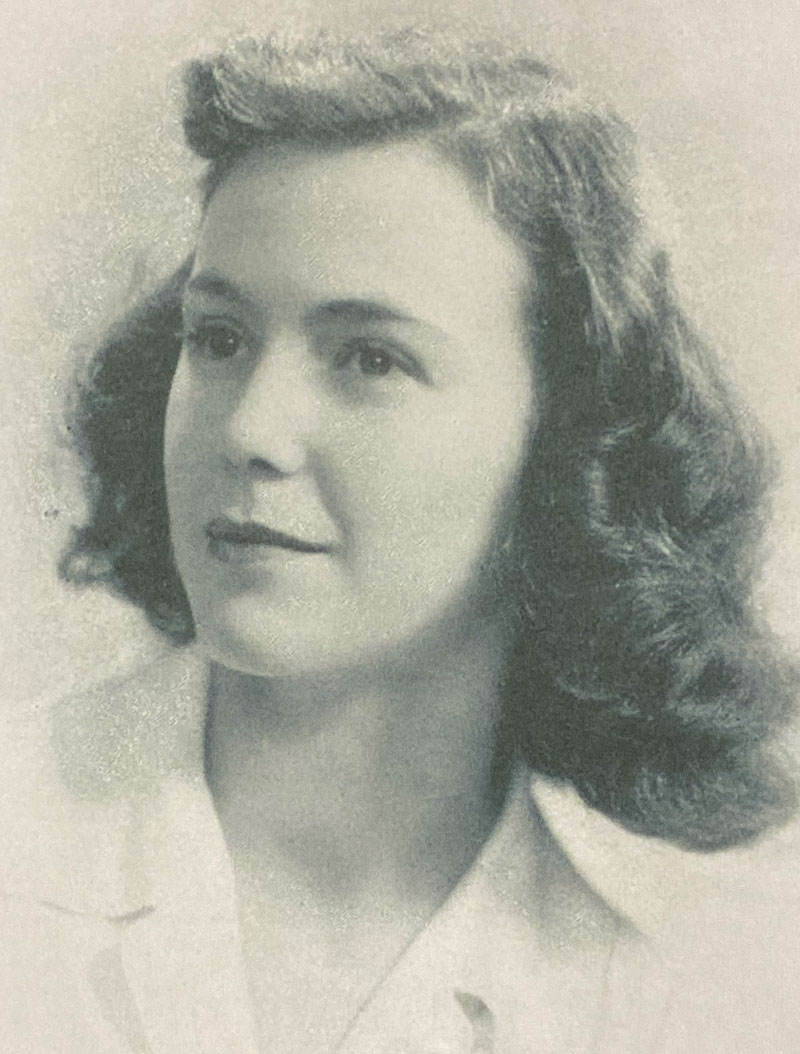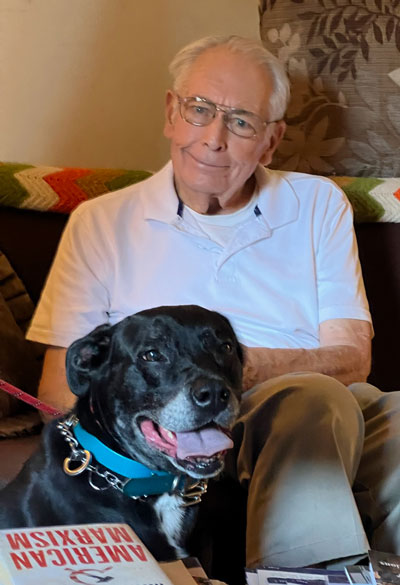“And Jesus said, ‘Father, forgive them; for they know not what they do….” (Luke 23:34). These words, uttered by our blessed Savior as He suffered on that terrible cross for us, have changed countless lives over centuries of time, and without doubt are doing so this very moment, and will far into the future. ‘Forgiveness’, as difficult as it may sometimes be to extend to another, is perhaps one of the most powerful commands that our Savior taught us, and surely is one of the most emotional reactions that separates mankind from the other life forms on Earth. As we will discover, forgiveness is what unites people, and ultimately nations, that had pledged to never forgive each other.
This “redemption road” story involves three people, all of whom harbored bitter hatred in their souls, and the concept of “forgiveness” was far from their hearts and minds until that “still, small voice of God” began to unleash its power in the darkness of their hate and despair: “Father, forgive them, for they know not what they do.” Let me introduce my “cast of characters” for this true story. Their names are: Margaret (Peggy) Covell, Mitsuo Fuchida, and Jacob DeShazer. You may have never heard of them, but now you will, for they were involved with three of the pivotal historic events of the 20th century: The Japanese invasion of the Philippines in January, 1942, the Japanese attack on Pearl Harbor, Hawaii on December 7, 1941, and the April 18, 1942 surprise counter-attack on Japan by Colonel Jimmy Doolittle and his “Raiders”.

“God moves in mysterious ways, HIS wonders to perform”. We’ve all heard those words often, and I’ve used them in some of my previous articles. Perhaps, after you’ve heard of several examples of His “wonders”, you’ll agree that, indeed, they were.
PEGGY COVELL (1928-1995) hated the Japanese at one time, and few would blame her. She grew up in Japan, a child of missionary teachers. Japan was an unstable society in 1939, being dominated by its military leaders. For the safety of their children, Jim and Charma Covell moved to the Philippines, where Peggy graduated high school in Manila in 1940. At that time Peggy went to the U.S. to attend college, and took her younger brother and sister with her, which was another of God’s providential miracles, for Manila was attacked and captured by the forces of Imperial Japan on Jan. 2, 1942. Fleeing before the advancing Japanese, the elder Covells finally found a place of safety in the mountains, which they called “Hopevale”.
Hopevale became a sanctuary place, and the Covells ministered to their Filipino friends in a deep ravine in the mountain forest. However, after almost two years fearful Filipinos betrayed them. On Dec. 19, 1943 Japanese troops captured Hopevale and all the missionaries that had fled there. All of them, including their children and friends, were tried and sentenced to be executed. After the war, survivors told how the Covells had asked for time to pray together and read their Bibles, which was granted. Then, one by one, still singing and praising God, they were led into the forest and beheaded. Charma Covell was the first to die. The Japanese burned all of their bodies.
Daughter Peggy wasn’t informed of her parents’ fate until after the war ended. As she said later, her hatred for all Japanese burned in her soul. She struggled everyday to overcome that hatred which was threatening to undo her faith. Then one day, a thought came into her mind: “Before my parents were murdered, they asked for 30 minutes to pray. What was their prayer?” Peggy became convinced that her parents had asked God to FORGIVE their executioners. Forgive them! If her parents had forgiven their murderers, how could she do any less?
After the war’s end, Peggy went to Colorado and began volunteering at a Japanese internment camp. She had determined to help the prisoners as a means of attaining and demonstrating forgiveness. The more she helped the Japanese prisoners, the more her ability to forgive was increased. Her loving and caring ways exhibited toward those hardened Japanese soldiers and bureaucrats eventually softened even their hate-filled hearts. When they asked her, eventually, WHY she did this for them, she replied gently: “Because the Japanese army killed my parents. But the Holy Spirit has washed away my hatred and has replaced it with love.” These hardened warriors, at first, couldn’t understand her Christian love, and many of them, as they said later after being repatriated to Japan, were haunted by the actions of one young American Christian woman. Peggy’s story and her love for them was told widely in Japan. One of those former prisoners in Colorado told that story back in Japan to a man who had become a Japanese national hero – a man whose name was MITSUO FUCHIDA, the man who had led the first wave of aircraft in the attack on Pearl Harbor!
My wife and I recently watched, for the first time since its original 1971 theatrical release, the excellent docu-drama DVD titled: TORA, TORA, TORA. Jointly produced by both U.S. and Japanese filmmakers, it was probably the most accurate portrayal of the events leading up to the Japanese decision to attack the American fleet at Pearl Harbor, and of the attack itself. (Yes, I know that there is another view of those same events, involving our government’s and President Franklin Roosevelt’s encouraging the Japanese attack on Pearl Harbor, and knowing that it was going to happen, which our government and our military DID know – because we had previously broken the Japanese secret code used by their bureaucracy. THAT information was included on a separate DVD that came with the movie.)

MITSUO FUCHIDA (1902-1976), a Captain in the Imperial Japanese Navy Air Service, became best known to history for his leading the FIRST wave of bombers and fighters during the attack on the U.S. Military Base at Pearl Harbor. At 7:40 a.m. on that “Day which will live in infamy”, Fuchida sent up a green flare from his aircraft, which signaled the order to attack. He ordered his radio operator to send the famous words back to his aircraft carrier, the AKAGI: “TORA, TORA, TORA”, which indicated that the Japanese had managed a complete surprise on the American fleet anchored below them. In Japanese, “tora” means “tiger”, and many WW11 historians think that Fuchida was sending “tiger, tiger, tiger”. In actuality his message was an abbreviated code, an acronym for: TOtugeki RAigeki, which meant “Lightning Attack”, indicating to his superiors that the objective of attaining a complete surprise over their enemy’s fleet had been achieved.
Mitsuo Fuchida was a practitioner of Shintoism, the religion of Japan. He served in the military throughout the war, and “miraculously” escaped further harm during the hostilities with the U.S. For instance, he escaped possible death in battle when he had an emergency appendectomy on his aircraft carrier, Akagi, instead of attacking the American warships in the momentous Battle of Midway. Later, an explosion on the ship he was on left him with two broken ankles, unable to fly into the face of danger and possible death, and he soon became a staff officer with Japanese Vice Admiral Kakuta. But Fuchida was ordered to Tokyo just before the American liberation of the island of Guam, where Kakuta failed in his efforts to halt the American invasion. Had Fuchida stayed with Admiral Kakuta, he would surely have joined with his superior officer in committing suicide.
Near the end of the war, Fuchida was ordered to the city of Hiroshima, but on Aug. 5, 1945 he was suddenly sent to Yamato for an intelligence briefing. The U.S. dropped the first atomic bomb on Hiroshima on Aug. 6, 1945, so Fuchida escaped certain death by one day. Only days after Hiroshima was bombed, he was sent with a team to inspect the damage. ALL of his comrades in that team soon died of radiation sickness, but Fuchida was unaffected. After the war’s end, out of the military and jobless, Fuchida returned to his family and his chicken farm. As he later recounted, he told his loved ones: “Life had no taste or meaning…. I had missed death so many times and for what? What did it all mean?”
As we’ll discover in Part 2 of this article, the Triune God of the Bible was not done with Commander Fuchida, nor with the third person in this story of God’s Providential Miracles, Staff Sergeant Jacob De Shazer, who participated in the historic Doolittle raid on Tokyo and four other Japanese cities in April, 1942.













